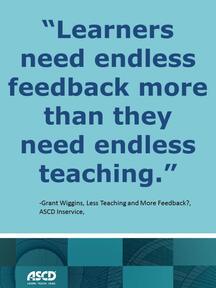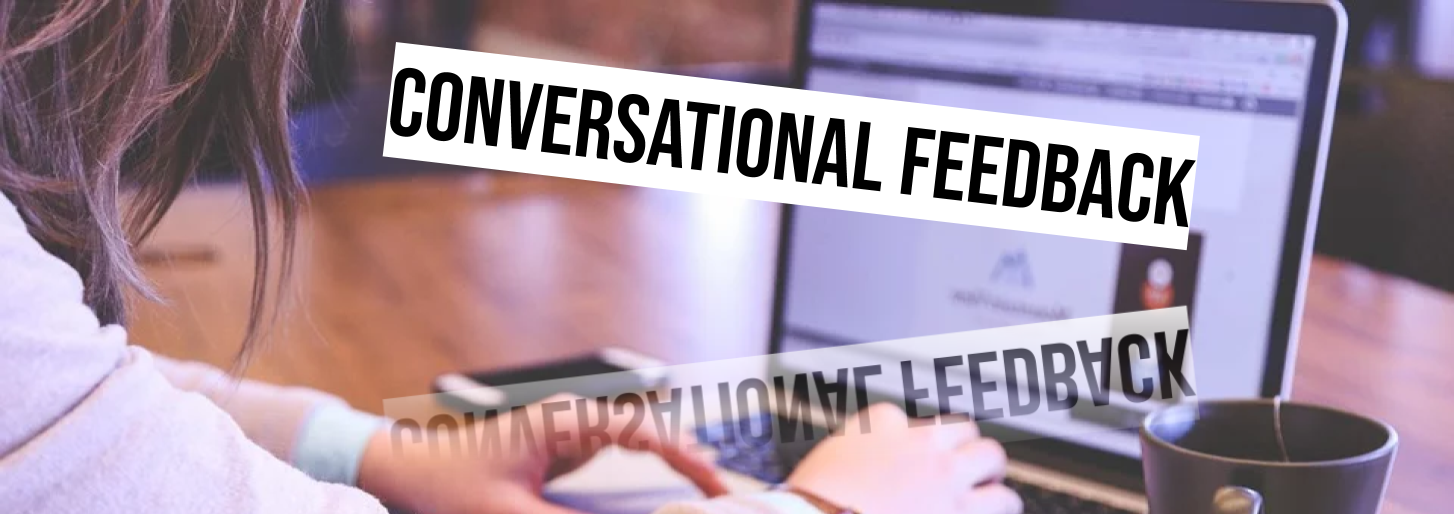Menu
It's time to chase Innovation instead of reacting to the status quo.
-Taylor Williams
 Conversational Feedback is the idea that the feedback that students are receiving from their teachers are centered on detailed, student specific comments. With our current situation with Covid-19, the red pen on the paper with a "good job" is not going to cut it. Grades will not determine the success of your students moving forward. Words, relationships, and conversation with students are going to set the bar for your students success. Conversational Feedback is the new grading system. The sooner you dive into this process the more success your students will experience. Below I have 4 Practical Ideas that will make your Conversational Feedback flourish. Idea #1-Be Consistent! Create 2-3 consistent arenas where feedback is available. An example of this could be a Class Questions Discussion Board, your Office Hours in Zoom, and feedback on any specific assignment that you are requiring submissions. Within most LMS solutions like Google Classroom and Canvas have the ability to provide private feedback to students when you create an assignment. Consistency is Key! Idea #2-Communicate when the Feedback will come Create a rule/norm that you can hold yourself accountable about feedback. For example, "all activities will be graded and returned with feedback within 48 hours of submission." "Any comments on the discussion board will have a response within 24 hours." *Sidenote-- With this being said, set your hours and be clear about them. You all have lives outside of your online classroom. Make sure your students know that you are there to support them, but that you are only available during certain portions of the day. Obviously, if there is an emergency after hours, you can support, but the danger with online teaching is that the door to your classroom never closes throughout the day. Be selfish and generous with your time at the same time! Idea #3-Let Students Speak Into Your Planning. Open yourself and your activities up to feedback. Empower your students to speak honestly about the learning experiences that you are creating...let your stakeholders (students) speak into their experiences and make changes to your activity creation based on the students' feedback. Then take it up another level...give credit to the students when you take their ideas and implement them into their learning experiences! An example would be to create a Flipgrid or Google Form where students can give honest feedback about their learning experiences, life, etc. Give it a fun name that will encourage honesty and interactions about what is happening..."TBH This Activity..." This can help your online classroom environment grow and evolve with the students as they grow into learning online. Idea #4-Create Opportunities of Learner to Learner Feedback Provide your students with clear feedback rules and structures to allow for the students to discuss, reflect, and give feedback to each other as the activities continue in your online class. This is something that can grow with time and practice, but if you create strong norms and expectations, as well as sprinkle some freedoms in there, you are giving another communication outlet to your students. Moving Forward The school year has completely shifted. The expectations that were on you as teachers and on your students as learners are gone. They have retired for the year and these new fresh streamlined expectations are upon us. The beauty of online learning is that you are going to be able to experience growth and forced innovation like nothing before. If that makes you feel queasy or anxious, good! Lean into that feeling because you are going in the right direction. Chip and Dan Heath wrote in their book, The Power of Moments, If a group of people develops a bond quickly, chances are its members have been struggling together. One study found that when strangers were asked to perform a painful task together...they felt a greater sense of bonding..." Create moments of connection with your students. Make fun spirit days, have events (like Gif Tuesday, Joke Wednesday), the content is important, but allowing space for students to engage and be in conversation (both academic and social) is going to bring together a group that you might not teach the likes of again.
0 Comments
Leave a Reply. |
About TaylorTaylor currently serves as a Coordinator of Innovative Learning for a mid-sized school district in Texas. He is a speaker, writer, and coach for all who are in conflict with the status quo. Archives
March 2023
|



